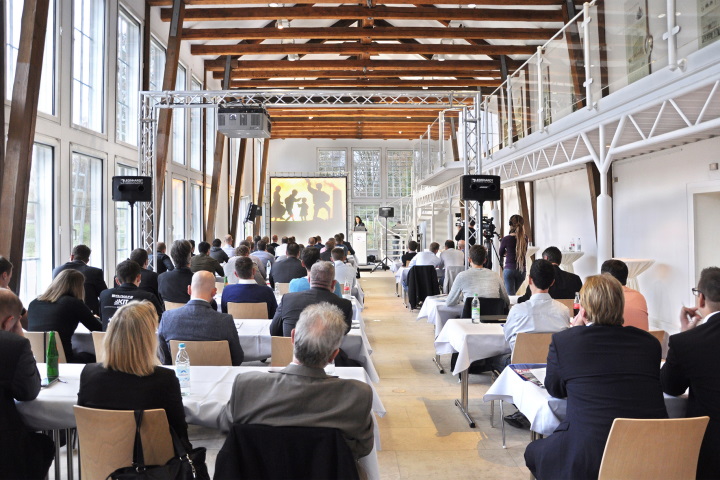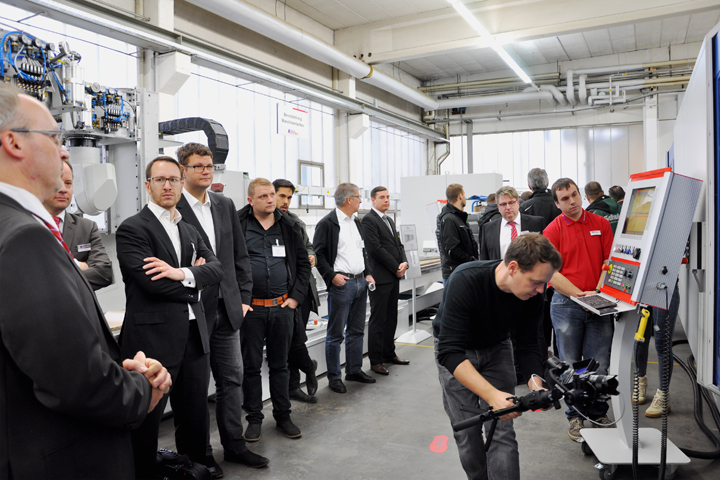
Knowledge transfer at a high level
Partner companies organise 1st technology seminar
The pioneering spirit of the partners Reichenbacher Hamuel and Hufschmied Zerspanungssysteme was not only clearly evident at their joint appearance at Composites Europe in Stuttgart, but also at the first specialist seminar, which they organised together with Fraunhofer IPA and Schuko on 22 November 2018 in Coburg under the challenging headline “From driving ban to milling ban”.
Around 70 participants from all over Germany had travelled to take part in a technology seminar focusing on the machining of hybrid lightweight materials after a tour of the Reichenbacher Hamuel factory in the Orangery in Rosenau Castle Park. It was clear to all participants that the industry will face many new challenges in the future and that only close cooperation and the interlocking of key technologies will lead to success. Thomas Czwielong, Managing Director of Reichenbacher Hamuel, put it in a nutshell in his welcoming speech. “Responsibility for the environment and people is omnipresent. Hybrid materials are becoming more and more important and the challenges involved in processing these materials can only be overcome if experts cooperate and jointly offer process-oriented complete solutions”.
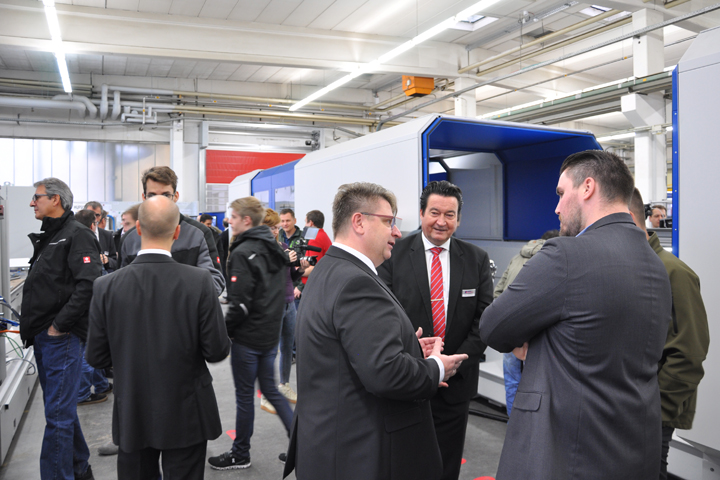
The guests, who included representatives of well-known companies from the German automotive and aviation sectors as well as experts from universities and research institutes, were enthusiastic about the enormous transfer of knowledge at the end of the day-long seminar. During the tour of the plant, the visitors were convinced that comprehensive solutions are already the order of the day for the majority of machine projects: Very practically demonstrated on the new Reichenbacher TUBE series, on which carbon milling was shown live, with tools from Hufschmied and extraction technology from Schuko.
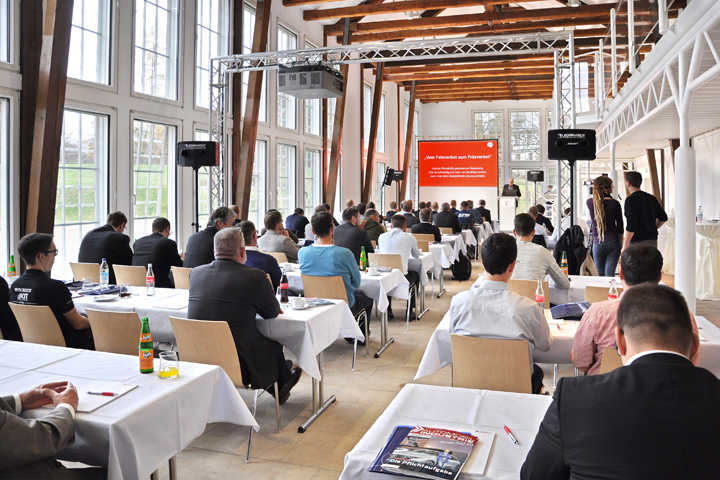
The content of the lectures covered a wide range, starting with lightweight construction, through the critical view from the medical point of view with regard to fine dust pollution, to the presentation of the influence on this component from the point of view of the machine, tool and extraction manufacturers. Medical professor Claudia Traidl-Hoffmann from the TUM Munich made an impressive statement in her lecture “Clean air in the machining environment from the point of view of industrial medicine” in the direction of the industry’s responsibility. She pointed out that the available long-term results leave no doubt as to how negatively fine dust particles affect human health and that the consequences are hardly foreseeable at present. The data from numerous epidemiological studies on the molecular mechanisms of environment-human interaction is overwhelming, and she addressed these facts unequivocally at the event and everyone was impressed.
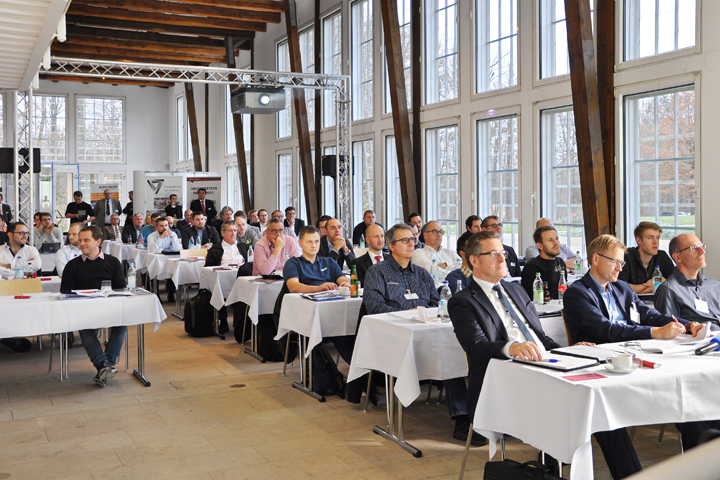
The managing directors André Schulte-Südhoff from Schuko Absauganlagen and Ralph Hufschmied from Hufschmied Zerspanungssysteme then seamlessly addressed this topic in their presentations and illustrated how they can contribute to better air quality with innovative technology. It was precisely this diversity of aspects that struck the seminar participants positively, especially since emphasis was always placed on conveying the fact that with the challenges ahead, individual companies can no longer do anything on their own, even with the best technology. Andreas Gebhardt from Fraunhofer IPA put this in concrete terms with the statement that customers are interested in a functioning overall system. And this requires effective cooperation between the companies from the very beginning of the process in order to achieve an optimal overall solution.
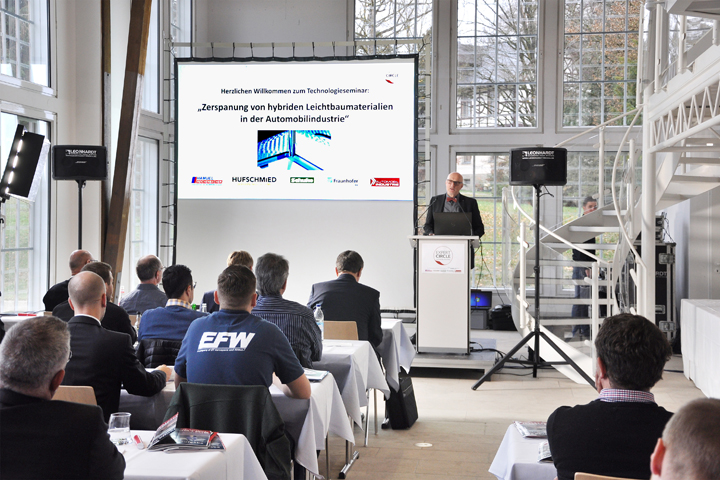
The headline “From a driving ban to a milling ban” was the perfect hook for everyone to get into conversation with each other. This made it possible to discuss concrete topics much more precisely and purposefully than would ever be possible at large trade fairs. Michael Schmitz, master model maker at the HS Coburg, said: “I will also register for next year’s technical seminars, because the knowledge transfer today was enormous, very well prepared and organised”.
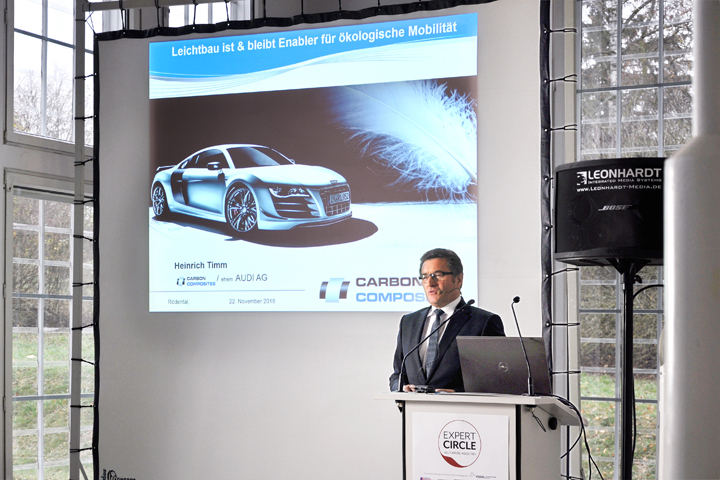
At the concluding panel discussion, Georg Hannig from Scherdel Siment emphasised that as a mechanical engineering company, you have to clarify in advance exactly how much swarf and other waste is generated in the production process in order to then work out an optimal overall concept together with partners. Heinrich Timm, board member of CCev, pointed out that especially in the area of e‑mobility, one cannot do without lightweight construction and specified his criticism of the, in his opinion, incomprehensible unequal legal limit values with regard to fine dust pollution of different habitats. His demand: a return to a sensible approach to limit values in order to prepare the ground for sustainable solutions that do justice to everyone — people, health and the economic interests of companies.

